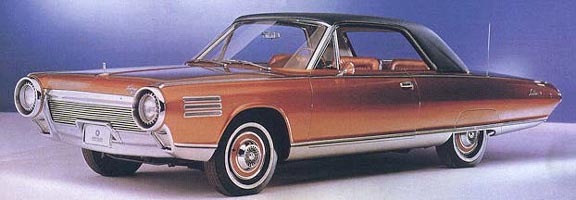Karl Marlantes: What It Is Like to Go to War
October 2, 2011 by David
Filed under Non-Fiction, WritersCast
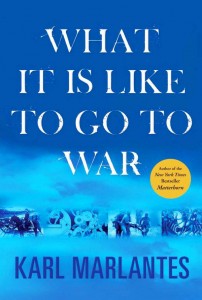 978-0802119926 – Atlantic Monthly Press – Hardcover – $25.00 (e-book and audiobook editions available)
978-0802119926 – Atlantic Monthly Press – Hardcover – $25.00 (e-book and audiobook editions available)
I read Karl Marlantes’ novel, the extraordinary Matterhorn last year (and interviewed him about it for Writerscast – you can listen to that interview here). I don’t think I am alone in believing that Matterhorn is perhaps the finest and most important war novel of the Vietnam generation; for me at least, it belongs in the pantheon of great American war novels (going back to WWI, Thomas Boyd’s Through the Wheat is another great novel written by an former Marine).
It took Karl Marlantes more than 30 years to write and publish the novel we read as Matterhorn its final form. His new book, What It Is like to Go to War, now follows as a deeply thoughtful and moving work of nonfiction about the nature and meaning of war, and what it means to the individual warriors who participate who fight, as well as to the society that gives them that responsibility.
There are many parallels between the two books. I’d recommend you take on the novel first, spend some time thinking about its story and characters, and then move on to this new work of nonfiction, which is a combination of personal memoir, meditation and social, political and cultural analysis and polemic.
Insofar as fiction gives us our deepest emotional and spiritual truths, Matterhorn cannot fail to move you and allow you to feel the reality of what it is like when our best and brightest go to war. Then What It Is Like to Go to War gives us another carefully wrought perspective, what Marlantes has learned from his own experiences and from many years of studying and thinking about war and society.
And we should all be paying attention to what he says here. America has had more people fighting wars for a longer period of time than at any other time in our history. Indeed what does this say about contemporary American society?
In 1969, when he was just 23, Karl Marlantes was an inexperienced lieutenant in charge of a platoon of Marines whose lives were in his hands. His experiences in the jungles of Vietnam , molded and shaped him throughout his life. He has thought deeply about his wartime experiences, how they affected him and his comrades, as well as how other soldiers before and since have gone through similar experiences. In What It Is Like to Go to War, Marlantes weaves accounts of his own combat experiences with analysis, self-examination, and powerful ideas drawn from his wide reading from Homer to the Mahabharata to Jung.
Unlike many of us who feel that war must be ended in modern society, Marlantes starts from the belief that war is an inevitable component of societal and political being. What he is after is to make us think about preparing warriors not for fighting, which we already do quite well, but for living with the effects on those who go to war that derive from participating in the morally unnatural but societally sanctioned acts of killing other human beings.
Most societies that preceded us have used powerful rituals, myths and ceremonies to integrate acts of war into the fabric of their cultures, and to reintegrate their warriors thoroughly into their societies, while our secular, materialist society really offers no tools or methods to warriors (or for that matter to civilians) to create a holistic “story” of why and how war is meaningful and necessary.
One of the many points he made in this book really struck me is that those who send men and women to war are themselves warriors, that actual soldiers (as opposed to guns and bombs) are their weapons. These individuals must fully comprehend what they do, and must find ways to integrate their own acts of war as much as the soldiers on the battlefield who wield the weapons and who witness so much death and destruction on both sides of battle.
I found that the author’s afterword to the book was very important to my understanding and acceptance of his work:
“We must be honest and open about both sides of war. The more aware we are of war’s costs, not just in death and dollars, but also in shattered minds, souls, and families, the less likely we will be to waste our most precious asset and our best weapon: our young.”
“The substitutes for war…are spirituality, love, art, and creativity, all achievable through individual hard work.”
I can’t recommend this book to readers enough. It’s book that, like the work of my friend, Paul Chappell, (Will War Ever End and The End of War) has the potential to shift our societal dialogue about war and what it can and should mean to a modern society.
There’s a fine review of What It Means to Go to War in the NY Times and a very worthwhile interview with Karl on Livewriters about Matterhorn.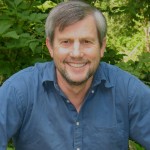
Podcast: Play in new window | Download
Katharine Weber: The Memory of All That
August 19, 2011 by David
Filed under Non-Fiction, WritersCast
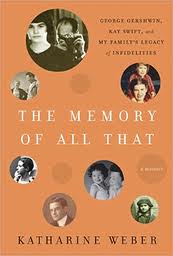 978-0307395887 – Crown – Hardcover – $24.00 – ebook editions also available
978-0307395887 – Crown – Hardcover – $24.00 – ebook editions also available
Katharine Weber is best known as a novelist – I interviewed her last year about her wonderful novel True Confections and she has written many more fine books. The Memory of All That, subtitled “George Gershwin, Kay Swift and My Family’s Legacy of Infidelities is both a memoir of her own family, as well as a history of a certain slice of twentieth century America, primarily focused on her grandmother, Kay Swift, whom she loved, and her quite unusual and difficult father, Sidney Kaufman, with whom her relationship was far more complicated to say the least.
Sidney Kaufman was a larger than life character, but mainly one of his own making, someone who spent years trying to “make it” in the movies and never succeeding. He was also a narcissist, a husband who literally neglected his wife and family, and who had numerous long lasting affairs. One most notable was an affair that lasted for years with Beatrice Buchman, wife of the famed (blacklisted) screenwriter, Sidney Buchman (who happens to be my father’s first cousin).
Sidney Kaufman also was a target of a decades long investigation by the FBI, initially because the agency confused him with another Sidney Kaufman, a longshoreman who joined the Abraham Lincoln Brigade to fight fascism in Spain. And hilariously, Kaufman was such a fantasist, that the FBI itself could not tell the facts about his life from the fiction. Not so hilariously was the effect of Kaufman’s absences and failures to relate to his family, which deeply affected the author of this book, as she recounts in some deeply moving passages in this book.
But in many ways, the focus of this book is really on Kay Swift, known even today for her wonderful music, as well as for her lengthy romance (and musical collaboration) with renowned composer George Gershwin. Weber tells her grandmother’s fascinating life story with a great deal of love, and of course intimacy, and provides an insider’s view of many details of her life and relationships with her husbands and lovers. Swift is in many ways an iconic, 20th century American woman, who made her way among men at a time when doing so was unusual and difficult, and required considerable verve and inner direction. And while she had many material advantages, the challenges she faced and overcame, both personally and professionally, were significant and testament to her powerful inner being.
Weber’s grandfather was James Paul Warburg, and here introduces us to him and the rest of his famous banking family. Interesting stories are here in abundance. Grandfather Warburg advised and feuded with President Franklin D. Roosevelt, great-uncle Aby Warburg, while eccentric to say the least, was responsible for significant theories in art and myth, and the family was at times dominated by the unusual psychoanalyst Gregory Zilboorg (who slept with his patients on a regular basis, and turned George Gershwin against Kay Swift when she decided to stop allowing him to sleep with her!)
Overall, this is an engaging, beautifully written and emotionally powerful book. Katharine Weber’s family has been complicated, brilliant, interesting, and influential in many areas of American life, and of course has made her the writer she is today. She tells the story of her family with humor, love and a keen eye for emotional detail, and gives us a portrait of herself at the same time.
In my conversation with Katharine we talked about her father, and the complexities of his life, as well as her relationship with Kay Swift and how this book came to be written. It’s a terrifically engaging story she has to tell and we had a great talk about her really great book.
Katharine Weber’s website is here. The Memory of All That got a terrific review in the NY Times:
“…Ms. Weber’s account of her relationship with her manipulative fabulist of a father brings to mind classic autobiographies of unmoored childhoods, like Mary Karr’s “Liars’ Club” and those companion volumes from the brothers Wolff, “This Boy’s Life” (Tobias) and “The Duke of Deception” (Geoffrey)…It’s when Ms. Weber remembers Papa that her considerable skills as a writer are most seductively on display. And it’s not just because the exasperating Kaufman is such a good subject. It’s that Ms. Weber is able to arrange words musically, so that they capture the elusive, unfinished melodies that haunt our memories of childhood. As her grandmother’s lover might have put it, she’s got rhythm.” – Ben Brantley
Podcast: Play in new window | Download
Anna Lappe: Diet for a Hot Planet
July 2, 2011 by David
Filed under Non-Fiction, WritersCast
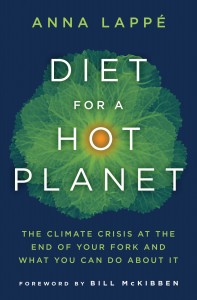 978-1-60819-465-0 – Bloomsbury – Paperback – $15.00 (ebook editions available)
978-1-60819-465-0 – Bloomsbury – Paperback – $15.00 (ebook editions available)
Anna Lappe´ is the daughter of the well-known activist and writer Frances Moore Lappe´, author of the classic Diet for a Small Planet, a book that introduced Americans to the idea of thinking about food and its role in ecology and the world economy, and how food is so deeply intertwined with economics and politics. Anna has therefore been involved in food issues since she was a child. She and her mother collaborated on another interesting and challenging book, Hope’s Edge in 2002. So it’s not a surprise that she is so thoroughly cogent and coherent writing and talking about food issues in the context of climate change.
As Anna says on one of her many website, takeabite.cc, “the food system is responsible for as much as one-third of all greenhouse gas emissions. These emissions are particularly alarming because the food sector is the biggest driver behind methane and nitrous oxide emissions, which have global warming effects many times more powerful than carbon dioxide.” In Diet for a Hot Planet, Lappe´ goes straight to the heart of the issue: if we are going to think about the global climate crisis, we have to think about our food system, and if we are going to make change to mitigate the effects of climate change, we must make changes (now) in the global industrialized food system that dominates most of the world today.
This book was extensively and deeply researched; Lappe´ talked to many scientists, went to UN, governmental, corporate, and grassroots agriculture conferences, worked her way through many lengthy and dense reports and studies, and also visited organic farms around the world.
In this book she has put together an impressive array of facts proving that global industrial agriculture—specifically the use of hazardous chemicals, concentrated animal feeding operations, biotech crops, and processed foods—is impoverishing the land, destroying rain forests, polluting waterways, and emitting nearly a third of the greenhouse gases that are heating the planet.
By contrast, intelligently designed and operated organic-farming methods reduce carbon emissions and toxic waste while at the same time nurture soil and biodiversity. Lappe´is convinced (and will likely convince you) that eating according to ecologically appropriate principles can not only influence the marketplace and help combat world hunger and climate change, but will make us healthier and safer as well. Lappé also decodes food labeling, exposes Big Ag’s “greenwashing” tactics, and offers “seven principles of a climate-friendly diet.”
With a terrific foreword by the brilliant Bill McKibben, Diet for a Hot Planet should be essential reading for anyone who is trying to grapple with making real change in the way we live on this fragile planet. Anna is a terrific public speaker and our talk for WritersCast is lively, full of information, and optimistic and positive as Anna herself.
Anna Lappe´related organizations and websites should be on your bookmark list:
Take a Bite Out of Climate Change
Podcast: Play in new window | Download
Nina Sankovitch: Tolstoy and the Purple Chair
June 5, 2011 by David
Filed under Non-Fiction, WritersCast
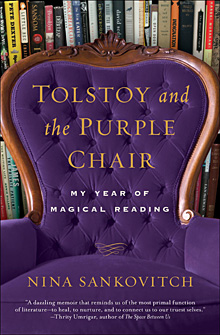 978-0061999840 – Harper – $23.99 – Hardcover (ebook version also available)
978-0061999840 – Harper – $23.99 – Hardcover (ebook version also available)
This is truly a wonderful book by an exceptional writer. Nina Sankovitch was living a full, active life as an environmental lawyer, happily married with four children, when her beloved sister became ill with cancer and died far too young. As she recounts in Tolstoy and the Purple Chair: My Year of Magical Reading, her initial response to her sister’s death was to “live her life double,” doing everything she could to try to make up for her terrible and painful loss. After three frantic years she realized what she was doing was unsustainable.
Ironically, her apparent retreat from doing to experiencing through reading was in some ways no less radical. Nina committed to reading a book a day for an entire year, no small commitment in itself, but further, she committed herself to writing a review or think piece about every book she read. That is a very high bar to set for any modern parent, even with a patient and understanding family (when I started Writerscast, I committed myself to read at least one book each week and to interview its author, a far lesser commitment, and after two years of doing it, I know how difficult, even impossible it would be for me to read a book a day, for a short period of time, much less a full year).
But Nina turned to reading because reading has always been central to her life and experience. Her immigrant parents read and loved books, as did Nina, from an early age. In Tolstoy and the Purple Chair, Nina tells the story of both her families, the vibrant one she grew up in, and the supportive and happy one she has raised. Many of the books she read in her magical year of reading are discussed here, as the stories of these books are part of the weave of how she transformed her experience of death into a celebration of life. And that is the crux of this memoir. By leaving her own experience to enter the realms of literally hundreds of writers, and making a place for those other stories in her own life, Nina was able to recreate and restore her own psyche – that’s the magic, the alchemy, of her magical year.
I should mention that Nina lives near me and has become a valued friend, partly through books we’ve read and discussed, including a couple I gave her to read and which are included in her year of reading. During that year she started an excellent blog called Read All Day where you can find all of her well written and exceptionally perceptive book reviews and essays.
Podcast: Play in new window | Download
Susie Bright: Big Sex Little Death (A Memoir)
May 21, 2011 by David
Filed under Non-Fiction, WritersCast
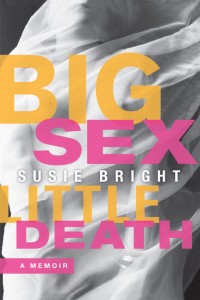 978-1580052641 – Seal Press – $24.95 – Hardcover (ebook and unabridged audio book available)
978-1580052641 – Seal Press – $24.95 – Hardcover (ebook and unabridged audio book available)
Reading Big Sex Little Death was a big surprise for me. I’ve known Susie Bright for a long time and have worked with her at various times over the years. I’ve long admired her work as a sex-positive revolutionist and a terrifically intrepid personality. I guess I was expecting a sexual travelogue as memoir and a pop culture tone of voice, and maybe some dishing on what it’s like to be a famous sexpert.
In fact Big Sex Little Death is mostly a really well written story that focuses more on Susie’s early years with her very difficult though intelligent mother (and later years when she was able to live with her anthropologist/linguist father), and her very active life as a political radical. In Southern California in the 70’s, Susie worked on a high school magazine called Red Tide, and later was an activist in the socialist movement of that period. Where, yes, there was a lot of sex (and sexism). Her radical political history was all new to me, and is very interesting to read about.
That was all before she became part of the pro-sex feminist movement in the 80’s, worked at the now famous Good Vibrations feminist sex shop, and helped found the now-famous lesbian sex magazine, On Our Backs, which for its seven year lifespan was hugely important in helping women define and own their sexuality. And in many ways that is what is most important about this memoir, that it connects politics and sexuality and helps us remember where so much of the culture we take for granted today came from.
Writing mostly about her earlier years, Susie leaves room, I suppose, for a sequel where she can talk about her later work as a nationally known sex expert, talented writer, and important editor of innumerable anthologies of writing about sex and sexuality.
As one might expect, we had a great time talking about her book and some of her many exploits as a public sex figure in a bizarrely prudish society. Ultimately this book should be read by anyone interested in late 20th century American culture, regardless of one’s gender, sexuality, interest in sex, out there or puritanical, it’s well worth your time. And I am a big fan of Susie’s blog too – and I recommend her latest on “sex positive parenting” to anyone who has ever thought about what they are teaching (or not) their children about their own values.![]()
Podcast: Play in new window | Download
Steve Lehto: Chrysler’s Turbine Car: The Rise and Fall of Detroit’s Coolest Creation
March 24, 2011 by David
Filed under Non-Fiction, WritersCast
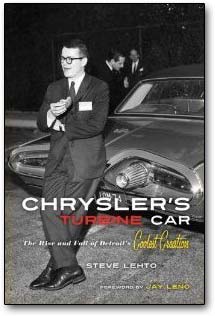 978-1569765494 – Hardcover – Chicago Review Press – $24.95 (e-book edition available)
978-1569765494 – Hardcover – Chicago Review Press – $24.95 (e-book edition available)
Steve Lehto’s portrait of the Chrysler Corporation’s amazing effort to engineer a turbine powered automobile is a terrific book, and alot of fun to read. You don’t have to love cars to enjoy this book, though I am sure it helps. But even if you don’t care about engines, and the dedicated engineers who spent years working on the turbine car program, you will learn a great deal about the industrial, social and cultural history of post World War II America.
Like so many kids who grew up in the 50s and 60s, I was enthralled with cars of all kinds, and when the Chrysler Turbine was first unveiled in 1964, along with millions of other Americans, I was fascinated and captivated by it – not only was it a beautifully designed car, futuristic and smooth, but it featured an engine like nothing else the world had ever seen up to that time. It was the Jet Age in automotive design, and here was a car with an airplane inspired engine in it.
The Chrysler Turbine represents an incredible commitment on the part of a major American automobile manufacturer to develop and popularize a truly radical alternative powerplant to the American driving public.
Chrysler’s turbine could run on almost any fuel – diesel, peanut oil, perfume, even tequila. Imagine what would have happened if the company had been able to devote hundreds of thousands more engineering and testing hours to the development of this engine over an additional 40 or 50 years. It’s entirely possible that we would not be worrying about hybrids, diesels and electric cars today. Reading Chrysler’s Turbine Car will give you a great understanding of the challenges any major new automotive development must face in order to become widely popular.
After a number of years of development and several generations of engine development, Chrysler hand built 50 examples of the the Turbine (that was its only name) and made them available to selected members of the general public for testing. Drivers could keep the cars for three months and were required to keep detailed logs of their experiences. Chrysler personnel maintained all the cars, flying all over America to repair and sometimes rescue cars that had problems, large or small. In all, the fleet registered over a million miles of testing, and performed extraordinarily well. Chrysler gained a huge amount of publicity and increased sales of their regular new cars, as well as learning a tremendous amount through the extensive practical use of their radically designed and built Turbine car by real drivers.
Unfortunately, for a variety of reasons, Chrysler ultimately abandoned the program completely, and destroyed most of the cars they had built. Only a few were saved and sent to museums to be put on display – which is where most of them still are today. Interestingly, Jay Leno was able to buy one of Chrysler’s own survivors and now drives it regularly. Author Lehto was able to drive Leno’s Turbine as part of his research for the book, and Leno contributed a foreword to this book.
Lehto interviewed every surviving member of the Chrysler team that built and maintained the cars during their short period of glory. He also spoke to many of the people who were lucky enough to be participants in the public lending program; their stories help make the book a fun and enjoyable read.
In many ways it is understandable why the Turbine car program was killed by Chrysler, even after so much effort and money had been invested in it. For a single car manufacturer to introduce a radical new powerplant completely outside the mainstream of engineering practice was ultimately economically unsustainable. But it’s impossible for us not to regret that Chrysler gave up on the multi-fuel efficient turbine in 1967, especially today, as we are facing a future when do not have a viable alternative engine to replace our dependable and thirsty reciprocating gasoline dependent engines.
This is a fun and worthwhile book to read, whether you are interested in cars, American history, culture, business or general nonfiction. Author Lehto, an adjunct professor at University of Detroit – Mercy, has written a very readable book, full of interesting characters and great stories you don’t have to be a car nut to enjoy.
Podcast: Play in new window | Download
Harry Hamlin: Full Frontal Nudity
March 13, 2011 by David
Filed under Non-Fiction, WritersCast
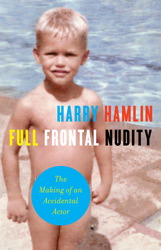 978-1439169995 – Hardcover – Scribner – $24.00 (e-book edition available)
978-1439169995 – Hardcover – Scribner – $24.00 (e-book edition available)
Harry Hamlin’s autobiographical memoir is not what you might expect if you are looking for a traditional “famous actor” tells-all but really tells-very-little story. Full Frontal Nudity is a completely honest, sometimes hilarious, sometimes sad, sometimes mind-boggling story about Hamlin’s growing up in suburban California and coming of age through two different college experiences and the beginning of his life as a professional actor.
This book is a thorough pleasure to read; Harry is a fine writer, and has a remarkable sense of the accidents and sometimes mysteries that go into making us who we are. And it’s also true throughout, whether intentional or not, by telling his own story, he becomes part of the larger social fabric of the 50’s, 60’s and early 70’s, and thus helps us understand what it was like to be alive during that now famous era of history. And for those many of us who were also there then, his story will remind us of some of the beauty and dangers we lived through.
The subtitle of this engaging memoir is important too: “The Making of an Accidental Actor.” Hamlin is clear that who he is today and how he got there represent the sum of a long series of accidents and choices with unintended consequences. As the book opens, we discover that Harry has an arrest record from 40 years ago that has suddenly prevented him from traveling to Canada, where he actually now lives part of each year.
How this happened is a great story, but what I liked most about it was the way that Harry told it on himself, unafraid to bare the truth about his life. I know that really good actors must learn how to do this, but they’re usually acting someone else’s drama, and thus are always protected on some level. There’s no hiding here, and it’s a refreshing turn. Hamlin is an actor, and a good one
Hamlin grew up in California, in a not quite normal household, and after high school headed for Berkeley at what some would say was just the right time – 1969. On the way to college, he managed an accidental detour that got him, shall we say, distracted. Intending to sign up for an architecture major, he found that there were no courses available, and the only ones available were drama, thus he embarked on what would eventually become his career. His time at Berkeley was suitably exotic, and included the drug possession arrest that later caused him so much trouble with the Canadian immigration folks. His time at Berkeley came to an untimely and early end because of a fire at the fraternity whose president he had become, and almost by magic, and again accidentally, he headed for Yale, where he flourished. Then another more or less accidental turn – he gives up a safe job as a PBS production assistant and takes an offer from the American Conservatory Theater, where a role in the play Equus ultimately led him to an outstanding film and TV career (notably LA Law, many others).
Overall Full Frontal Nudity is a terrific and wonderfully enjoyable book, and unsurprisingly, we had a thoroughly interesting and revealing conversation about the book and many of the stories he wrote about.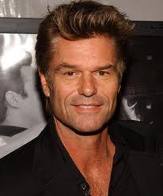
Podcast: Play in new window | Download
Mickey Leigh: I Slept with Joey Ramone
January 28, 2011 by David
Filed under Non-Fiction, WritersCast
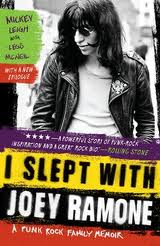 978-1439159750 – paperback – Simon & Schuster – $15.99 (ebook versions available $12.99)
978-1439159750 – paperback – Simon & Schuster – $15.99 (ebook versions available $12.99)
Mickey Leigh grew up in Queens in the 1950s and 1960s as Mitchel Hyman. His brother was Jeffrey Hyman, more famously known as Joey Ramone, lead singer of the great American punk rock band, The Ramones. I Slept with Joey Ramone (subtitle: a punk rock family memoir) tells their story from the beginning to the end of Joey’s relatively short life and just a bit farther into the almost present day. Mickey had some writing help from rock journalist Legs McNeil, and throughout the book, the story is told compellingly in Mickey’s voice and from his perspective.
We start in Queens where the boys grow up somewhat rockily. Their family situation was never easy, and Mitchel and Jeff were bullied misfits. Joey had both physical and psychological issues that manifested early in his life. Music became their savior very early, but at the beginning it was Mitchel (Mickey) who was the musician, and it took some time before the very complicated Jeff got together with the band that became the Ramones and found not only his voice, but his new identity.
The Ramones story as told by Mickey Leigh, is pretty incredible, even for fans who know something about the band and were there during the glory days. The relationships between the various band members were legendarily terrible. How this band stayed together and made such incredible music is still a mystery. Mickey was there at the beginning; John Cummings, aka Johnny Ramone, was initially his best friend. Mickey ended up being the band’s first roadie, while Joey, the quintessential misfit outsider, became the front man singer of what eventually became one of the greatest rock bands of all time. Later Mickey had his own career with a number of bands, as well as being a songwriter too.
The many stories and incidents recounted in this book are never boring, even when the sometime strange and complicated elements of Joey Ramone’s personality begin to repeat themselves over years. There is a tremendous amount of love here, and some not so nice things as well. Mickey’s own story is complicated and he has alot to say about alot of the people he worked with, for and sometimes against throughout the years. Nothing here is ever boring. It’s sometimes sad and frustrating to know how things were for Joey Ramone and his family, friends and associates, as it was often difficult, confusing and painful for all of them. Even years later, when they were inducted into the Rock and Roll Hall of Fame, the Ramones created an emotionally complicated scene.
Ultimately, Mickey (and doubtless Legs too) has captured beautifully a unique and special part of modern musical history, that is also the story of redemption, which is after all, the real story of rock and roll. And at the end Joey and Mickey always did make up. As Mickey tells it, the last time really counted the most. “He pulled me down to him, and he just didn’t let go. I can still feel that hug.” This is a book well worth reading for anyone interested in New York punk rock. I had a great time talking to him about the book and his experiences in rock and roll.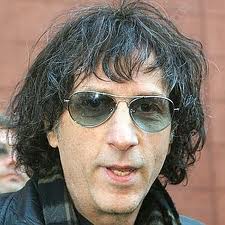
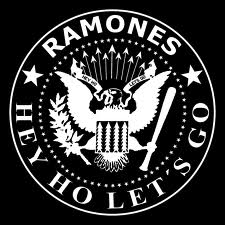
Podcast: Play in new window | Download
Douglas Rushkoff: Program or be Programmed
January 11, 2011 by David
Filed under Non-Fiction, WritersCast
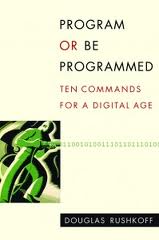 978-1935928157 – Paperback – OR Books – $16.00 (ebook edition $10.00)
978-1935928157 – Paperback – OR Books – $16.00 (ebook edition $10.00)
with terrific original illustrations by Leland Purvis.
I think this book, Program or be Programmed: Ten Commands for a Digital Age by digital critic and thinker Douglas Rushkoff, should be required reading for anyone interested in modern culture, politics or economics. It’s a short book, densely argued, that requires careful reading and attention to its ideas. Which probably makes it daunting to many in this era of fragmented ideas and short subjects. But it’s divided into ten clear sections (note “commands” as in programming inputs, rather than “commandments” as in biblical instructions) and is well worth the effort a reader must put into reading it.
I spent more time with this short book than with many much longer books I have read recently. And I am very happy I did. As Howard Rheingold says “Thinking twice about our use of digital media, what our practices are doing to us, and what we are doing to each other, is one of the most important priorities people have today.” It’s impossible not to agree. And Rushkoff understands the complexity of behavior and thinking that the always-on, always-connected internet has brought to modern culture.
It’s not about whether the internet is good or bad, or whether online culture somehow supplants a more preferable offline one. As the publisher says about this book, “the real question is, do we direct technology, or do we let ourselves be directed by it and those who have mastered it? “Choose the former,” writes Rushkoff, “and you gain access to the control panel of civilization. Choose the latter, and it could be the last real choice you get to make.”
Having the opportunity to talk about these ideas with Rushkoff was tremendously exciting and invigorating. He’s a really smart guy whose clarity of thought I admire alot. I’ve spent alot of time participating in, reading about and analyzing new media and modern culture myself, and I know I have learned alot from Douglas Rushkoff’s books and ideas. I think Program or be Programmed is one of the most important books I have read in a long time.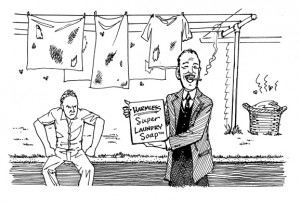
Podcast: Play in new window | Download
Claudia Dreifus: Higher Education?
January 3, 2011 by David
Filed under Non-Fiction, WritersCast
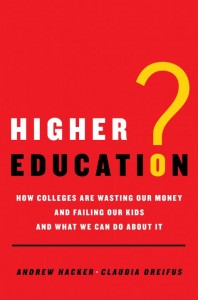 978-0805087345 – Times Books/Holt – Hardcover – $26.00 (ebook edition available at $12.99)
978-0805087345 – Times Books/Holt – Hardcover – $26.00 (ebook edition available at $12.99)
I well remember reading the work of sociologist Andrew Hacker many years ago (and was particularly impressed by his now out of print The End of the American Era). When I learned that he and New York Times writer Claudia Dreifus had collaborated on a new book about the modern college and university system, I knew I would want to read it. The complete title and subtitle of the book is important as it tells what the book is about pretty clearly: Higher Education?: How Colleges Are Wasting Our Money and Failing Our Kids—and What We Can Do About It. While this book takes a far different approach than Anya Kamenetz’s DIY U, the two books really should be read together by anyone interested in the future of higher education. (My interview with Anya can be found here in the Writerscast archives.)
Here is how Hacker and Dreifus describe this book on their excellent and highly recommended website:
“Higher Education? asks what students and families receive for the approximately quarter of a million dollars four years at a top-tier American university cost. With many prestigious universities hinting of continued tuition hikes, with the rate of student debt increasing to crisis levels, we ask, “How did a college degree become the second most expensive purchase families will make in their lifetimes?”
Plus: “Are young people getting good value for their enormous investments?”
We hope that our book can trigger a national discussion. With a system this large and complex, we certainly don’t have all the answers. But we hope to toss a few pertinent—and impertinent–questions into the public square.”
I think their questions, their many criticisms, and their suggestions for positive change mostly ring true. As almost everyone knows, the cost of a four year college education has become astonishingly expensive, and there seems to be no way to slow down the out-of-control machine. Hacker and Dreifus question some basic assumptions that so many parents, high school educators and kids themselves take for granted – that the more prestigious schools are “worth” their costs, that the expense of a four year college education is justified by the later benefits of coveted high income employment, etc. But they also ask, what should a college education be for, and how do colleges measure up to what we expect from them.
If going to college is only about students later getting the best jobs, are colleges providing education or some sort of high end vocational system? What is the justification for college sports? Do highly paid tenured professors really contribute to the education of students in ways commesurate with their salaries, and how do we justify all the many layers of bureaucracy in colleges and universities throughout America that do not provide significant educational value to the students who bear the majority of the costs they incur? And what about the low-paid, overworked adjunct professors who bear the brunt of the teaching burden in so many institutions of higher learning?
One could expect quite a bit of controversy about this book and certainly quite a bit of resentment by many of the established academic interests they attack. Interestingly, Vartan Gregorian, the former president of Brown University and current president of the Carnegie Corporation of New York loves the book: “With facts, figures and probing analysis, authors Andrew Hacker and Claudia Dreifus clearly lay out why so many colleges and universities are helping to support a de facto American class system while failing their primary mission of preparing not only skilled labor but also producing educated, knowledgeable citizens who can play a role advancing our national life and strengthening our democracy.”
Reading this powerfully argued book can make one almost uncomfortable, as they question so many of the benefits of higher education we tend to take for granted. But in the end, it is difficult not to agree that there is much that needs to change in the way our colleges and universities function in society. The future of American higher education looks grim if we do not address these issues in the very immediate future.
I had originally hoped to interview both the authors together, but while that was not possible, my discussion with Claudia Dreifus was both lively and interesting. Since Claudia’s background is in interviewing, she handles being the interviewee with aplomb and grace. I’d recommend listening to this interview and then reading the book as soon as possible. You will want to learn more, I think then, about how you can work toward making actual change in the American educational system. Visiting the Hacker/Dreifus website might be a good start but I do think it will require organized, meaningful action especially by parents and their children as they are the ones most able to cause change to occur. Is there anyone who can lead such a movement? Or will the current system simply continue on its present arc until the cost of education is so high that consumers finally just say “no more?”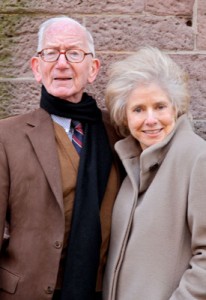
Podcast: Play in new window | Download




